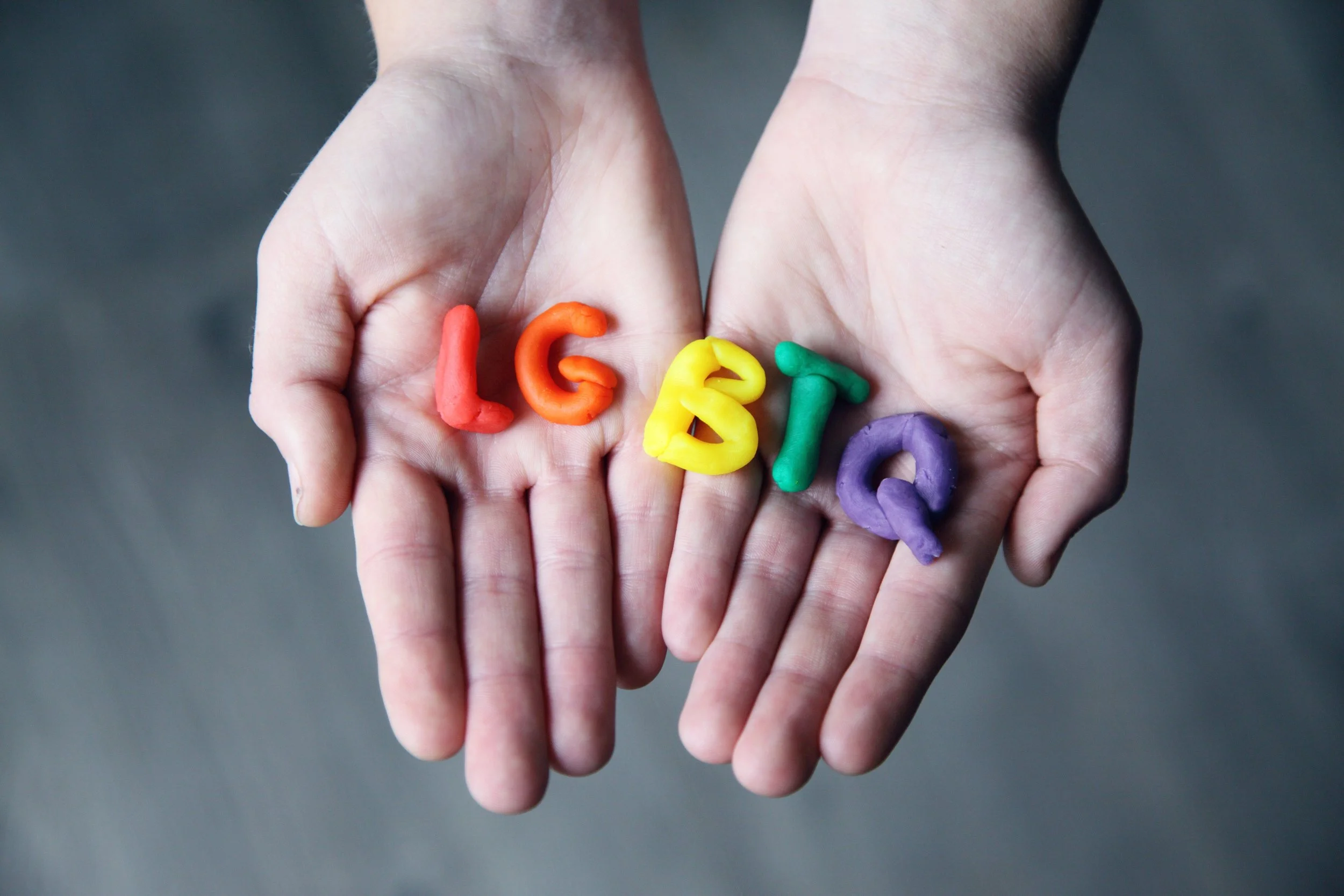LGBTQ+ Counseling
Do you “think you might be” transgender, lesbian, gay, or bisexual?
Do you wish you could have pride about who you are?
Perhaps the dynamics in your family relationship changed after coming out.
Maybe you feel like no one around you will truly understand who you are or what you’re going through.
Has your coming out led to disagreements and distance?
Do you feel misunderstood or misidentified?
I’ve tried to talk to other health care professionals about my LGBTQ+ identity, but they just didn’t get it. Why would I come to you?
While living in Los Angeles I received extensive training working as a therapist at the LGBT Center. I worked with with individuals, families, and couples addressing issues such as depression, self harm, relational stress, and/or substance abuse.
My passion for serving the LGBTQ+ community began during my own coming out process. I disclose this part of my identity to clients as a vehicle for change in the healing journey. Disclosing gender identity and sexual orientation was standard practice at the center. Through my experience, I found disclosing my sexual orientation as bisexual to clients often combats the impacts of minority stress and ‘outsider syndrome’ experienced.
Wherever you are in your journey, I am here to help and provide you with a knowledgable and safe space to discuss your sexuality and gender identity.
Why is it important to see a therapist who professionally trained in LGBTQ+ issues?
LGBTQ+ individuals experience mental health conditions just like the rest of the population. However, LGBTQ+ identifying individuals continue to experience prejudgement and biases when seeking health care.
Many individuals who identity as LGBTQ+ may experience discrimination or feeling “not understood” by their therapists which discourages them from seeking subsequent health care. Often times the client will spend the majority of the session time explaining principles to their provider and less time focusing on what they really need.
As an openly bisexual therapist, I have heard this all too often. I developed my practice to help you cope with stigma, discrimination, oppression as well as provide you with compassionate care to discover or reinforce your authentic self.
What is a LGBTQ+ affirming therapy practice?
True Growth Therapy is a LGBTQ+ affirming practice. I have professional training and clinical knowledge as well as lived experience to support our work together.
As a LGBTQ+ affirming therapist I will help you by…
creating a safe and non-judgmental environment to support your sexual identity exploration, discovery, and identification
maintaining an empathic and curious environment to relieve stress about gender identity, transitioning, and coming out as your true self
being familiar with coming out process and its’ associated challenges
providing LGBTQ+ community referrals, resources, and identifying who may be in your “chosen family”
helping navigate transgender and gender non-conforming challenges
giving transgender support including legal and insurance processes
assisting in exploring HIV/AIDS identity and empowerment
Are LGBTQ+ individuals at higher risk for mental illness?
The fear of coming out and experiencing discrimination due to your sexual orientation can be paralyzing and even lead to depression, stress, anxiety, and substance abuse.
LGBTQ+ individuals are almost 3 times more likely than others to experience a mental health condition such as major depression or generalized anxiety disorder (National Alliance for Mental Illness, 2018).
the LGBTQ+ community is at a higher risk for suicide due to lack of support, discrimination, or other mental health conditions (National Alliance for Mental Illness, 2018).
If you or your child is experiencing challenges surrounding sexuality or gender identity finding a LGBTQ+-affirming therapist may be an important step towards healing and wellness.
Do you work with straight-identifying people too?
Even though I have this knowledge and training does not mean I turn straight individuals away! Many of the people I work with identify as straight and feel comfortable sharing about their sexual identity, experiences, and other topics as they feel they may be judged by others.

